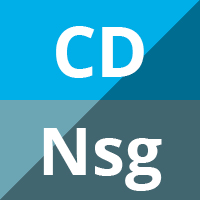
Antiplatelet therapy for preventing stroke in patients with non-valvular atrial fibrillation and no previous history of stroke or transient ischemic attacks
Abstract Background Non-valvular atrial fibrillation (AF) carries an increased risk of stroke. Antiplatelet therapy (APT) is proven effective for stroke prevention in most patients at high-risk for vascular events, but its value for primary stroke prevention in patients with non-valvular AF merits separate consideration because of the suspected cardioembolic mechanism of most strokes in AF […]

Triflusal for preventing serious vascular events in people at high risk
Abstract Background Aspirin is the standard treatment for secondary prevention of stroke and other vascular events. Several studies suggest that triflusal may have a better safety profile. Objectives To determine in people at high risk of vascular events whether triflusal is an effective and safe treatment for primary and secondary prevention of serious vascular events. […]

Oral anticoagulants for preventing stroke in patients with non-valvular atrial fibrillation and no previous history of stroke or transient ischemic attacks
Abstract Background Non-valvular atrial fibrillation (AF) is associated with an increased risk of stroke mediated by embolism of stasis-precipitated thrombi from the left atrial appendage. Objectives To characterize the efficacy and safety of oral anticoagulants (OACs) for the primary prevention of stroke in patients with chronic AF. Search methods We searched the Cochrane Stroke Group […]

Percutaneous transluminal angioplasty and stenting for vertebral artery stenosis
Abstract Background Surgery for vertebral artery stenosis is technically difficult, potentially hazardous and is not considered in most centres. There is growing evidence from case series that vertebral artery stenosis may be treated endovascularly by percutaneous transluminal angioplasty and stenting. This may be a feasible alternative to surgery to relieve symptoms caused by significant stenosis. […]

In-hospital care pathways for stroke
Abstract Background Stroke care pathways have the potential to promote organised and efficient patient care that is based on best evidence and guidelines, but evidence to support their use is unclear. Objectives To assess the effects of care pathways, compared with standard medical care, among patients with acute stroke who had been admitted to hospital. […]

Anticoagulants versus antiplatelet therapy for preventing stroke in patients with nonrheumatic atrial fibrillation and a history of stroke or transient ischemic attack
Abstract Background People with nonrheumatic atrial fibrillation (NRAF) who have had a transient ischemic attack (TIA) or minor ischemic stroke are at risk of recurrent stroke. Both warfarin and aspirin have been shown to reduce the recurrence of vascular events. Objectives The objective of this review was to compare the effect of anticoagulants with antiplatelet […]

Omega 3 fatty acids for prevention and treatment of cardiovascular disease
Abstract Background It has been suggested that omega 3 (W3, n-3 or omega-3) fats from oily fish and plants are beneficial to health. Objectives To assess whether dietary or supplemental omega 3 fatty acids alter total mortality, cardiovascular events or cancers using both RCT and cohort studies. Search methods Five databases including CENTRAL, MEDLINE and […]

Anticoagulants for preventing stroke in patients with nonrheumatic atrial fibrillation and a history of stroke or transient ischaemic attack
Abstract Background People with nonrheumatic atrial fibrillation (NRAF) who have had a transient ischaemic attack (TIA) or a minor ischaemic stroke are at high risk of recurrent stroke. Objectives The objective of this review was to assess the effect of anticoagulants for secondary prevention, after a stroke or TIA, in patients with NRAF. Search methods […]

Antiplatelet therapy for preventing stroke and other vascular events after carotid endarterectomy
Abstract Background Antiplatelet drugs are effective and safe in a wide variety of patients at high risk of vascular ischaemic events. Among patients undergoing vascular surgical procedures, these agents significantly reduce the risk of graft or native vessel occlusion. In this context we wished to examine their effects in patients after carotid endarterectomy (CEA). Objectives […]

Chelation therapy for atherosclerotic cardiovascular disease
Abstract Background Chelation therapy is being promoted and practiced all over the world as a form of alternative medicine in the treatment of atherosclerotic cardiovascular disease. It has been recommended as a safe, relatively inexpensive and non-surgical method of restoring blood flow in atherosclerotic vessels. At present the benefit of chelation therapy remains controversial at […]

